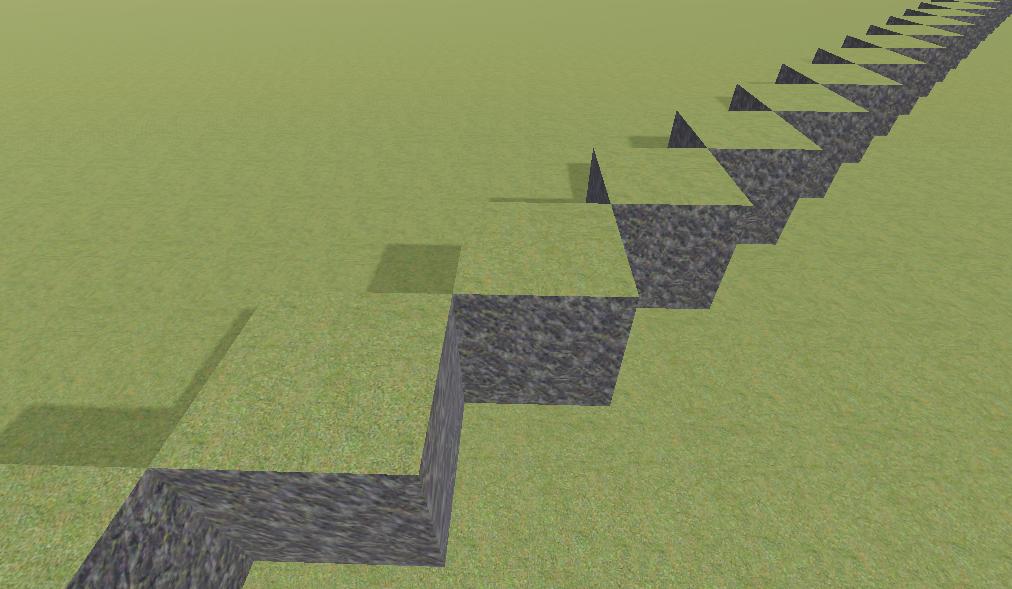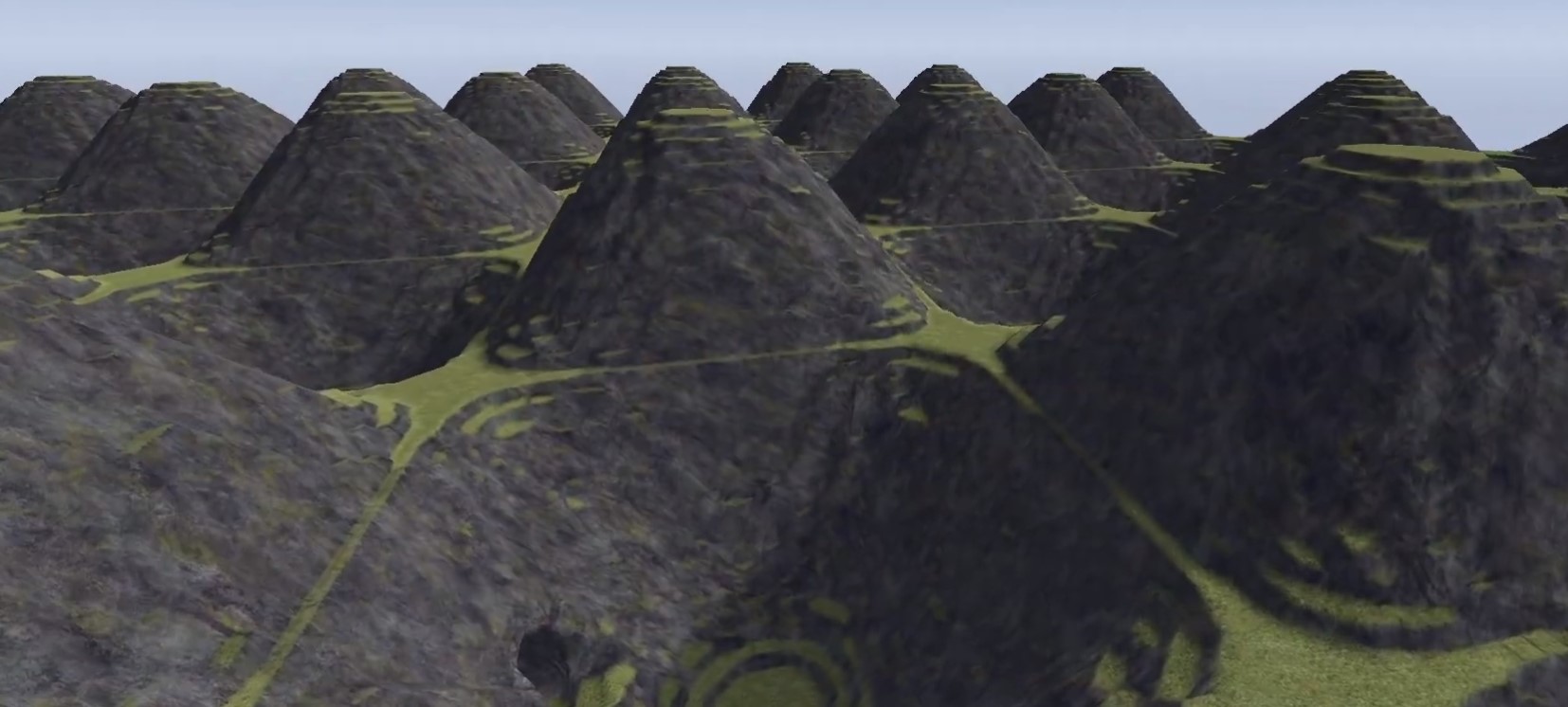1.6 KiB
1.6 KiB
Generate Your Own Voxel Data
You can provide your own voxel generator by extending VoxelGenerator in either GDScript or C++.
Note: Your generator must be thread safe.
Create MyStream.gd with the following contents:
extends VoxelGenerator
export var channel:int = VoxelBuffer.CHANNEL_TYPE
func get_used_channels_mask () -> int:
return 1<<channel
func generate_block(buffer:VoxelBuffer, origin:Vector3, lod:int) -> void:
if lod != 0: return
if origin.y < 0: buffer.fill(1, channel)
if origin.x==origin.z and origin.y < 1: buffer.fill(1,channel)
In your terrain generation script, add this:
const MyStream = preload ("MyStream.gd")
var terrain = VoxelTerrain.new()
func _ready():
terrain.stream = MyStream.new()
terrain.view_distance = 256
terrain.viewer_path = "/root/Spatial/Player" # Set this path to your player/camera
add_child(terrain)

Though VoxelBuffer.fill() is probably not what you want to use, the above is a quick example. Generate_block generally gives you a block of 16x16x16 cubes to fill all at once, so you'll want to use VoxelBuffer.set_voxel() to specify each one. You can change the channel to VoxelBuffer.CHANNEL_SDF to get smooth voxels.
In the fps_demo, there is a custom gdscript stream that makes a sine wave. This was copied from the C++ version, which runs a lot faster.
